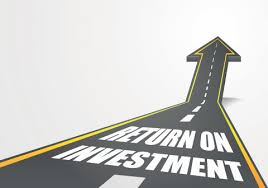Tuesday, November 13, 2018
The efficient market hypothesis is bogus. The stock market, its sectors, and its individual stocks are often mispriced. But that doesn’t mean speculating on those errors makes sense.
Speculation is at best an intellectual form of gambling, like playing blackjack rather than roulette or craps. But all forms of speculation are likely to decrease one’s wealth over time. And every experienced speculator, in his heart, knows this to be true.
Selling speculations is not speculating. It is a form of business. And for some, it is a very profitable business.
The prudent wealth builder that speculates treats his speculations as spending.

Delray Beach, FL.- In an essay published in Investopedia, Tim Parker writes: “Whether speculation has a place in the portfolios of investors is the subject of much debate. Proponents of the efficient market hypothesis believe the market is always fairly priced, making speculation an unreliable and unwise road to profits. Speculators believe that the market overreacts to a host of variables. These variables present an opportunity for capital growth.”
The argument Parker attributes to speculators is correct. The stock market is often inappropriately priced. And sectors within the stock market are badly priced even more often. Not infrequently, market sectors are grossly mispriced. The same is true for individual stocks.
I am always astounded when I think of how quickly and widely accepted the thesis of the efficient marketplace came to be. The logic, simply put, is that the big financial players – including institutional investors, hedge funds, and the like – have, through internet communications and computer technology, access to all of the key financial data they need to value stocks. They even have access to indices of public sentiment. With all that knowledge available and updated in nanoseconds, the price of any stock, any sector, and even the market itself will of necessity reflect the correct pricing.
This doesn’t make sense on several levels. For one thing, it is impossible to measure consumer sentiment or to predict its ebb and flow. More importantly, raw data (such as history of earnings, revenue growth, P/E ratios, etc.) cannot possibly give a reliable view as to the value of a company in the future.
I cannot tell you with any accuracy the true value of the equity of any of the companies I own and control. And I certainly could not predict what the value will be in six months or a year. So how could these data-crunching investment behemoths know?
But forget about the logic. Take a look at any 20-year period of stock market valuations and you will find moments when the market “corrected” itself, sometimes with a fall of 10% or more. What is happening there? There can be only one answer: irrational exuberance. And as I have already pointed out: You cannot measure accurately, let alone predict, the fluctuations of investor sentiment.
But that doesn’t mean that speculating is a reasonable way to accumulate wealth.
(Note: Hedging and arbitrage are not necessarily speculating. If done properly, they are the opposite. We will talk about them another time. This is about speculating and only that.)
What is speculating? John Maynard Keynes said it is acting as if one “knows the future of the market better than the market itself.” I like that definition because it emphasizes the core problem with speculating. It is fundamentally a bet on the future. And betting on the future is betting on something that is largely unknowable. Why bet on future possibilities when you can make good money investing in the known facts, the realities, of the present?
Professional speculators use sophisticated strategies such as swing trading, pairs trading, and hedging along with fundamental analysis of companies/industries and macro analysis of economics/politics to place their bets.
Just think about what I just said. The best speculators are crunching numbers from all these realms and using complex, technical strategies to make their decisions. And it is all done in the hope of getting way-above-average ROIs. It’s a whole lot of work. And at the end of the day, success depends on thousands of uncontrollable and even unknowable details. Where is the reasonableness in that?
John Bogle, bestselling author and founder of the Vanguard Fund, wrote a book called The Clash of Cultures: Investment vs. Speculation. In it, he demonstrated that individual investors almost always lose big when they speculate. He says that speculating is an “unwise” strategy for ordinary people whose goal is to safely accumulate funds for retirement.
“The internet and financial media may encourage speculation,” he says. “But that doesn’t mean you should follow the herd.”
Indeed. The reason the financial media and the brokerage community promote speculation is because they benefit from the fact that most speculators lose and lose big. And all those losses end up in the pockets of the brokers and the bankers and also the prudent investors that would rather invest their money safely for reasonable gains than gamble for big wins.
* In this series of essays, I’m trying to make a book about wealth building that is based on the discoveries and observations I’ve made over the years: What wealth is, what it’s not, how it can be acquired, and how it is usually lost.

 MarkFord
MarkFord







